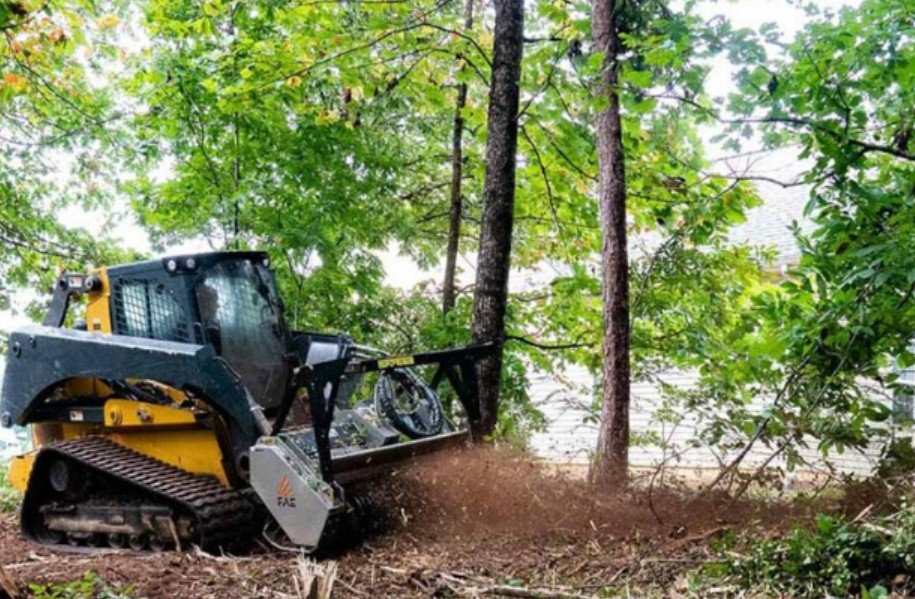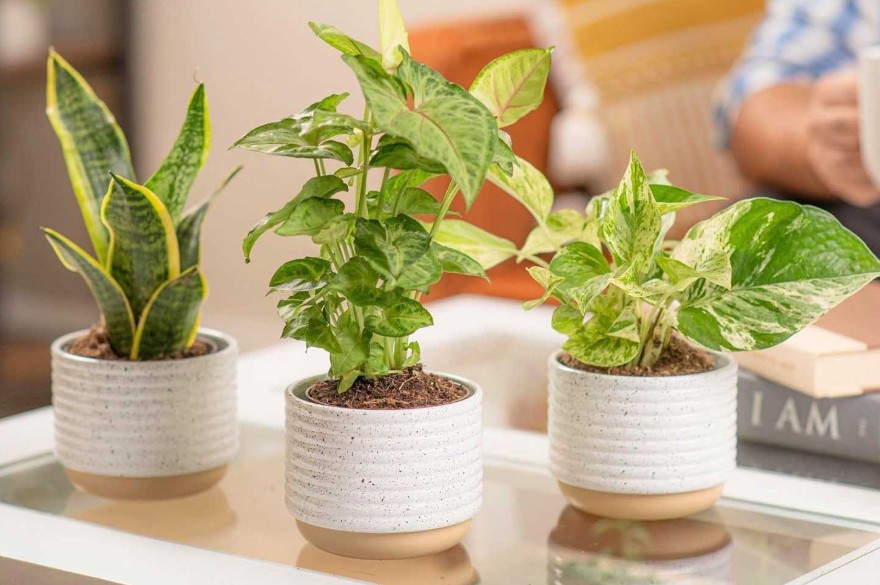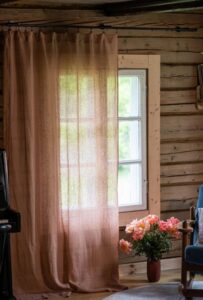Autumn may feel like the time of year to slow down on the yard work, but it’s actually your best time ever to be gardening.
Any perennials you plant now will have all winter to establish their root systems, so when spring arrives, followed by our hot, usually dry (but not this year!) and relentless summers, they’ll flourish instead of flounder.
The exact same thing is the case with grass seed. A healthy lawn really only stands a chance if you plant the seed this time of year.
And speaking of lawns, be kind to the clover. It’s not a weed. Clover seeds used to be mixed into the grass seed because clover naturally fertilizes lawns by fixing and releasing nitrogen the grass needs to flourish. This concept of a chemically-supported grass-only lawn just came about after World War II after the bomb-making companies tried to market the nitrogen and other bomb-making chemicals for new purposes — our lawns
People are also reading…

This is part of the author’s yard. All the plants come from trades and gifts, except for the Victoria Blue Salvia which the author asks Donna Prillaman of Donna’s Plants to seed in flats each year, and the ferns, and the pink crepe myrtle which was bought for $2.50 when a local store was getting rid of plants to make room for Christmas trees. This week the author and others will be sharing plant starts for free with a giveaway at the Bulletin. The dog, incidentally, is that $10 mutt from the Patrick County Animal Shelter mentioned in the column also on this page, a marvelous companion and very fine pet.
Holly Kozelsky
“If perennials, shrubs and trees are supposed to be planted now,” you may be asking yourself, “then why are they mostly only for sale in the spring?”
That, dear friend, is because the spring is when consumers are excited about going outside and ready to spend their money. It’s the mighty dollar, not horticulturalists’ advice, that reigns over what’s for sale when.
But any efforts we make in the garden now, over the next couple of weeks, will reward us next year and beyond.

All of the flowers in this garden came from starts from other people, except for the blue forget-me-nots, which were started from seed. Monday through Wednesday at the Bulletin office, the author will share plants from her garden, including some of the purple coneflowers and yellow Gaillardias shown here. The mulch came free from a community mulch pile in Leatherwood, and the stepping stones were brought home from the mountains.
Holly Kozelsky
The Bulletin has plenty of plants to get your next year’s garden started now. They are plants that I and several friends have dug up from our gardens to share. We’ll set up shelves outside the Bulletin office at 19 E. Church St. in uptown Martinsville; stop by between 9 a.m. and 5 p.m. Monday through Wednesday to get some.

Some plants of Dame’s Rocket will be given away by the Bulletin, as well as a similar one, the light blue phlox. Both are easy to grow.
Holly Kozelsky
These are slips—plants from our gardens that we’ve put into little pots and bags and some just grouped in boxes of dirt that you’ll need your own packaging for — not nursery plants packaged prettily for sale. If you have extra small pots or bags, please bring them to help us package those plants, but it’s not necessary.
These plants to share include iris, Stella D’Oro day lilies, lemon balm, purple coneflower, blue bellflowers, muscari, hollyhocks, pink primrose, calla lilies, horehound, mountain mint, cilantro, yew, delphinium, Rose of Sharon and a great deal more.

Primrose will be among the giveaways — but watch out! It spreads and takes over areas.
Holly Kozelsky
Here’s another tip on how to stock up for next year’s garden: Get flowering plants, bushes and trees at 75{ae4c731f0fa9ef51314dbd8cd1b5a49e21f1d642b228e620476f3e076dd7c050} to 90{ae4c731f0fa9ef51314dbd8cd1b5a49e21f1d642b228e620476f3e076dd7c050} off their retail price (though later I might regret sharing my secret and getting too much competition from other like-minded shoppers) — Visit general stores that sell plants two weeks before Thanksgiving, and then the week before Thanksgiving.
That’s because the big box stores have to get rid of all their flowers, shrubs and trees to make room for Christmas trees and decorations. You’ll be getting leftovers, but hey—that’s how I planted $2.50 shrubs and trees all around my yard instead of $25 shrubs and trees.
Money does not grow on trees, but it does not need to be spent excessively on them, either.

The May-blooming classic iris is one of the flowers that will be shared by the Bulletin.
Holly Kozelsky
Even if you don’t plant anything new this fall, there is a lot of garden maintenance work to do now. We have to clear our gardens of all the foliage which has died down — first, to make it look better, and second, to get rid of pests which otherwise would overwinter there and just get worse next year.
Most people put down mulch in the spring, but if you do it now or in the winter, your gardens beds will look better during the barren months.
If you’re willing to use the shovel and have either a pickup truck or a car you’re not too fussy about (put a tarp or an old plastic shower curtain in the bottom of your trunk, then use a large tub to shovel it into), you can get free mulch at one of the places the tree-cutting companies use to dump wood chips and shreds.
The only one I know about is at a spot on Chatham Road (Va. 57), 7 or 8 miles down from the Leatherwood Food Lion, just before Leatherwood Grocery. Ronnie McNeely, of the McNeely family who own the Grocery and the land where the mulch is dumped, once told me that they invited the tree companies to dump their mulch there “because it’s good for the community.”
Please call or email me at the Bulletin and tell me about other free mulch sources, and I’ll list them in the Stroller for everyone to see.
Gardening is about nature. Nature had gardening worked out just fine, until our society, little by little, forgot how to garden naturally and instead became dependent upon commercial entities to supply us.
By knowing where to get things, and who to get them from — such as your gardening friends at the Bulletin — you can make gardening once again be a thing of sharing and of finding, not of throwing away your money.
Don’t kick potted mums to the curb: They’re perennials you can keep
On Gardening: Augusta Lavender heliotrope tops must-have plant list for 2022
How to plant a garden that can thrive in drought conditions
Holly Kozelsky is the editor of the Bulletin and a gardener.







